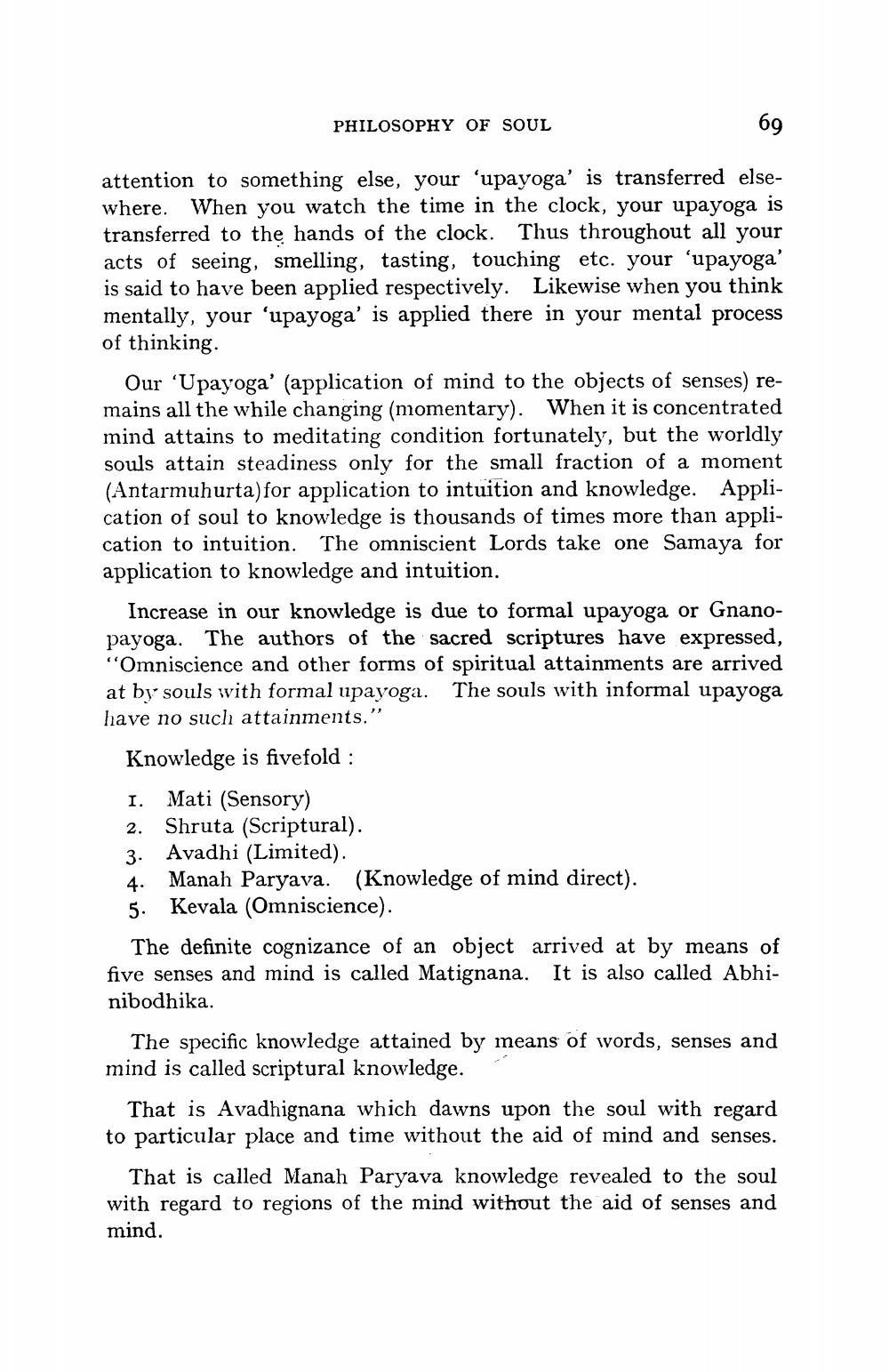________________
69
attention to something else, your 'upayoga' is transferred elsewhere. When you watch the time in the clock, your upayoga is transferred to the hands of the clock. Thus throughout all your acts of seeing, smelling, tasting, touching etc. your 'upayoga' is said to have been applied respectively. Likewise when you think mentally, your 'upayoga' is applied there in your mental process of thinking.
PHILOSOPHY OF SOUL
Our 'Upayoga' (application of mind to the objects of senses) remains all the while changing (momentary). When it is concentrated mind attains to meditating condition fortunately, but the worldly souls attain steadiness only for the small fraction of a moment (Antarmuhurta) for application to intuition and knowledge. Application of soul to knowledge is thousands of times more than application to intuition. The omniscient Lords take one Samaya for application to knowledge and intuition.
Increase in our knowledge is due to formal upayoga or Gnanopayoga. The authors of the sacred scriptures have expressed, "Omniscience and other forms of spiritual attainments are arrived at by souls with formal upayoga. The souls with informal upayoga have no such attainments."
Knowledge is fivefold:
I. Mati (Sensory)
2. Shruta (Scriptural).
3.
Avadhi (Limited).
4.
Manah Paryava. (Knowledge of mind direct).
5. Kevala (Omniscience).
The definite cognizance of an object arrived at by means of five senses and mind is called Matignana. It is also called Abhinibodhika.
The specific knowledge attained by means of words, senses and mind is called scriptural knowledge.
That is Avadhignana which dawns upon the soul with regard to particular place and time without the aid of mind and senses.
That is called Manah Paryava knowledge revealed to the soul with regard to regions of the mind without the aid of senses and mind.




